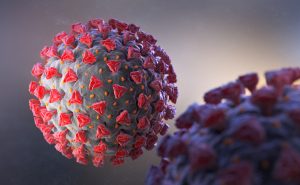In January 2021, Tajikistan declared itself COVID-19 free. President Emomali Rahmon in a January 26 address to parliament proclaimed: “Tajikistan today is without COVID-19.”
Six months later, the president’s 64-year-old sister, Qurbonbi Rahmonova, died of COVID-19, according to RFE/RL and local reporting. Rahmonova was buried on July 21, as international condolences rolled in from Uzbek President Shavkat Mirziyoyev and the Sultan of Oman, among others. Officially, there’s been no comment on the cause of Rahmonova’s death.
Last week, RFE/RL reported that several of the president’s relatives had been infected with the coronavirus that has ravaged much of the world. Rahmon’s 88-year-old mother-in-law died in early July, with sources telling RFE/RL’s Tajik Service that she had been diagnosed with COVID-19 and was on a ventilator when she passed. Other reportedly infected relatives include a son-in-law, businessman Shamsullo Sohibov, who has been hospitalized; and two of Rahmon’s daughters with mild symptoms.
From its belated recognition of the virus’s presence in late April 2020 up to January 10, 2021, Tajikistan had recorded just 13,308 cases and 90 deaths. The country’s authorities admitted in late June that new cases had been discovered. As of July 26, according to WHO data, Dushanbe has reported only 15,004 cases and 118 deaths. There isn’t readily available information on what variants are transmitting in Tajikistan, but given the devastation being wrought by the Delta variant, first identified in India, it’s likely circulating in Tajikistan as well.
On July 26, First Deputy Minister of Health and Social Protection of the Population Ghafour Muhsinzoda said at a press conference that the Delta variant “most likely” spread to Tajikistan via Russia. He also said there was no need to introduce a “general quarantine” but warned that this virus variant spreads faster than the original. The Delta variant is more contagious than other strains of the novel coronavirus and the unvaccinated are at significant risk.
Tajikistan began vaccinations in late March with an initial delivery of 192,000 doses of COVAX-provided AstraZeneca vaccines. UNICEF’s representative in the country, rather than a Tajik official or citizen, was the first person to receive a coronavirus vaccine in Tajikistan. In early July, the country’s coronavirus task force ordered all citizens over 18 to get vaccinated, making Tajikistan the world’s first country to mandate vaccination against the coronavirus.
According to the WHO, as of July 18 Tajikistan had administered 452,362 vaccine doses — but only 21,304 people had been fully vaccinated.
As in much of the world, access to vaccines is a major hurdle.
In mid-June, the Asian Development Bank approved a $25 million grant to help Dushanbe procure and distribute around 3 million COVID-19 vaccine doses, enough to vaccinate around 1.3 million people. China says it will deliver 1.5 million doses of the CoronaVac vaccine on July 28, following a delivery of 300,000 doses of the Sinovac vaccine last week. The United States donated 1.5 million doses of Moderna vaccines via COVAX to Tajikistan over the weekend. Tajikistan’s total population is estimated at around 9.3 million.
In the July 26 press conference ostensibly devoted to the arrival of the U.S.-supplied vaccines, Tajik Health Minister Jamoliddin Abdullozoda was absent. RFE/RL reported that Interior Ministry sources support a nasty rumor that three of Qurbonbi Rahmonova’s sons beat the minister and other health officials on July 20, just after her death. At the press conference, Deputy Health Minister Shodikhon Jamshed rejected questions about Abdullozoda, saying the minister was on a business trip.

































